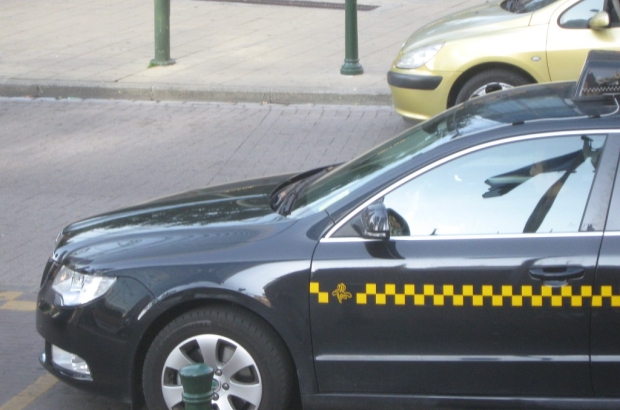- Daily & Weekly newsletters
- Buy & download The Bulletin
- Comment on our articles
Spot checks at Brussels-Midi find half of taxis not compliant
A series of spot checks on taxis at Brussels-Midi station has found that almost half the vehicles operating at the busy transport hub should not have been on the roads.
Out of 33 taxis checked by the Brussels-Midi police zone and Brussels Mobility, 16 were found to be not fully compliant with roadworthiness rules.
“This is also partly due to the screening method,” said Gert Claus from the Midi police zone.
He said action led to the identification of various offences, such as expired on-board documents and worn tyres.
One taxi driver had two licences in his pocket. "If a person is banned from driving, but declares their driving licence is lost or stolen, they can present a clean driving licence at a spot check," Claus said. "Although in principle this should always be checked by the office."
The inspection was carried out as part of a training course for new officers on taxi legislation.
Inge Paemen, spokeswoman for Brussels Mobility - the capital’s department responsible for mobility strategies and projects to develop, renew and maintain public spaces - said that these checks were not only carried out regularly on taxis, but also on lorries, school buses and other vehicles.
For example, at a recent "mega-inspection" of professional transport near Brussels port, on the Quai de Heembeek, some 38% of vehicles were in breach of the law.
"Offenders risk a fine and taxi company operators and their can have their licence taken away," she added. "It [the sanction level] depends on the nature, seriousness and circumstances of the offence."
Inspections are not only carried out to ensure safety, but also to prevent unfair competition in the taxi or transport sector, Paemen added.
“For example, we also checked whether all employees were registered. This was not the case for all taxi companies,” she said.
The fact that taxis and taxi companies are still not in order raises questions about the effectiveness of the controls.
For Paemen, however, “the checks are working, but perhaps we should make it even clearer that they are happening, and that drivers can be caught”.


















